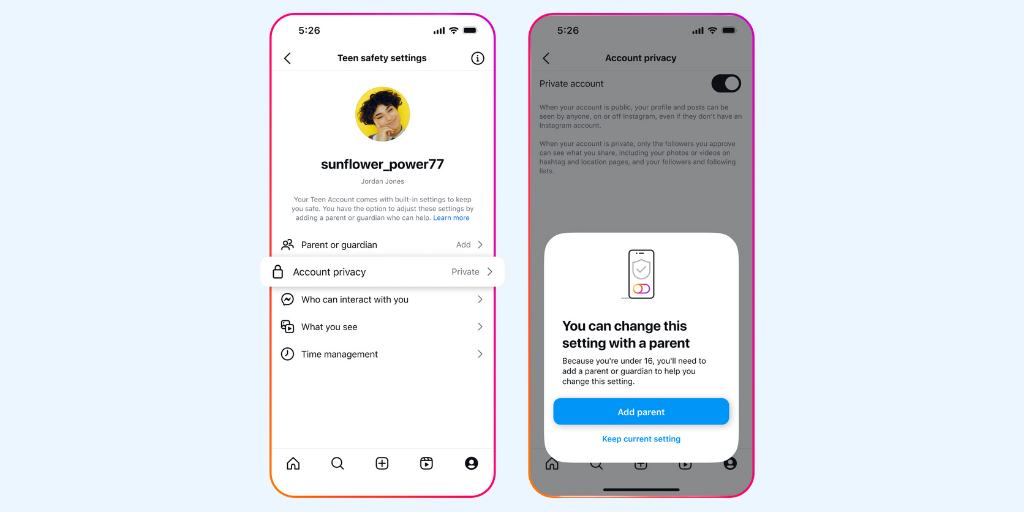
Welcome to Parent Pixels, a parenting newsletter filled with practical advice, news, and resources to support you and your kids in the digital age. This week:
📉 Teens say social media is hurting their mental health, and many are cutting back: According to a new Pew Research Center report, nearly half of U.S. teens say social media has a mostly negative effect on people their age. That’s a significant jump from 2022, when just 32% said the same. Nearly half of teens (45%) say they spend too much time scrolling their feeds, and 44% say they’ve tried to cut back. Some other sobering stats that will make you want to delete Instagram and Snap:
One teen summed it up: "People seem to let themselves be affected by the opinions of people they don’t know, and it wreaks havoc upon people’s states of mind."
More teens are starting to recognize the toll social media can take — and many are already trying to build better digital habits. Parents can help by modeling those habits, encouraging breaks, and keeping lines of communication open. Talk to your teen about what they’re seeing, who they’re following, and how they feel after being online. Their answers might surprise you.
🤖 Instagram will use AI to catch kids lying about their age: Meta, Instagram’s parent company, announced that it will use artificial intelligence to proactively detect users who have lied about their age when signing up. Instagram has restricted settings for teen users, but it’s relatively easy for kids to bypass age verification. This new feature will look at the type of content a user interacts with, their profile information, and when the account was created to determine if they’re underage. Meta says the goal is to make Instagram safer for younger users, but it also comes at a time when more states are pushing for stronger age verification laws and fed-up parents protest outside of the headquarters of major social media companies.
AI can help flag accounts, but it’s not foolproof. This is a good time to double-check that your child has the right birthdate listed in their account, that they’re using a Teen Account, and that you’ve reviewed their privacy settings. Learn more about how Instagram compares to Snapchat and TikTok in terms of safety settings.
Parent Pixels is a biweekly newsletter filled with practical advice, news, and resources to support you and your kids in the digital age. Want this newsletter delivered to your inbox a day early? Subscribe here.
From social media apps to search history, kids and teens are navigating a digital world that collects more data than they may realize. But not all of it is used in ways they understand or would agree to. Here are a few conversation-starters to help you talk with your child about online privacy.
💸 How young is too young to have a credit card? This essay on Salon explores consumerism among Gen Alpha and the problem with learning how to spend before learning how to save.
🫥 Online interactions will never beat the experience of face-to-face conversations — but when kids grow up mostly with screens, they miss out on interactions that matter, per this essay on After Babel. “The bottom line is that every in-person conversation that is replaced or disrupted by a device is a missed opportunity for kids to feel more connected, loved, and alive in the short term; to foster meaningful relationships over time; and to become even passable communicators by the time they reach adulthood.”
⚖️ Texas lawmakers have advanced bills that would ban kids under age 16 from using social media and would require social media platforms to add warning labels. The bills head to the state’s Senate next.